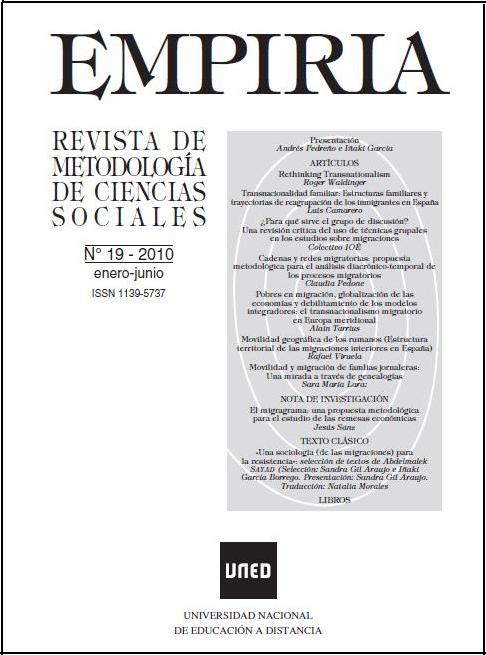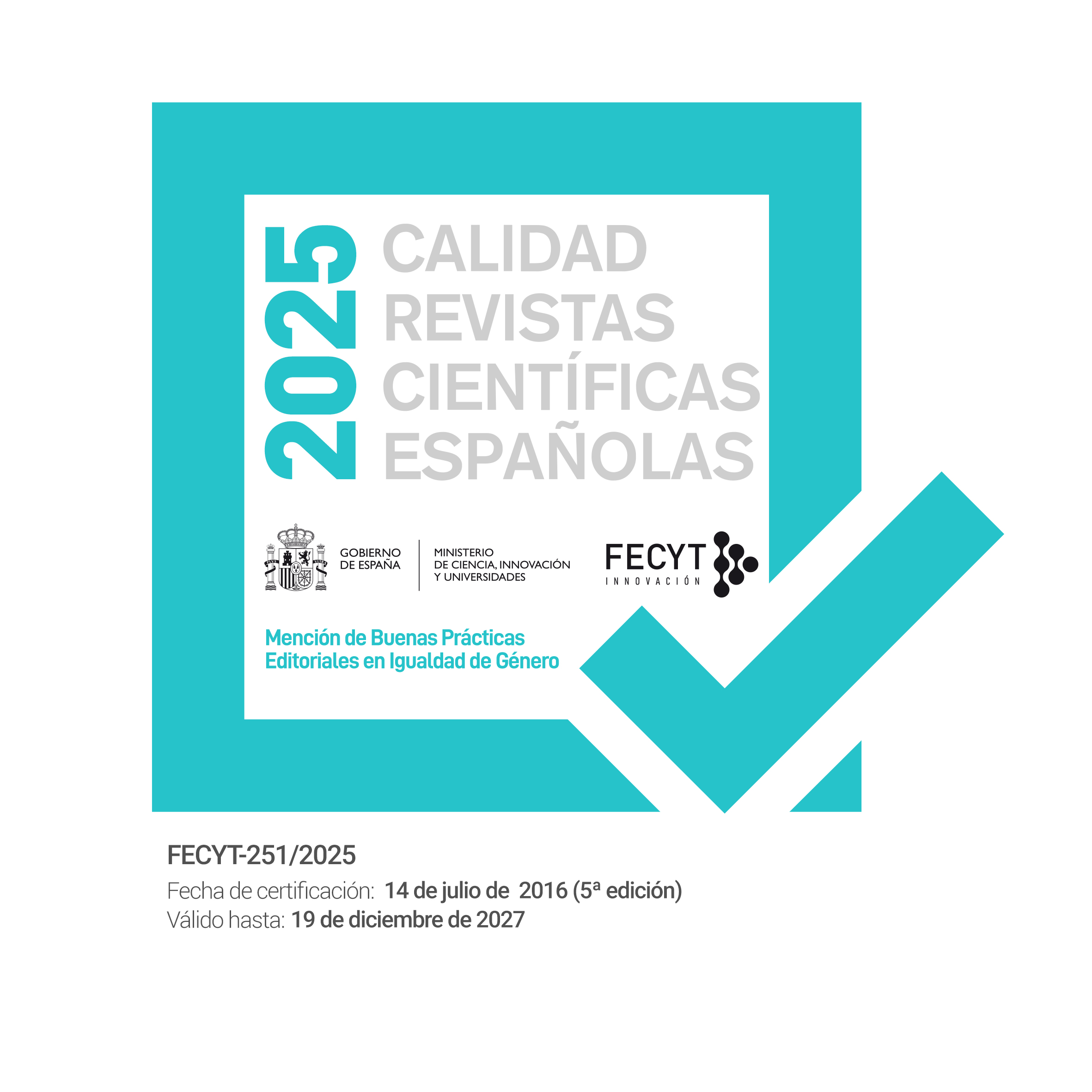Movilidad y migración de familias jornaleras: Una mirada a través de genealogías
DOI:
https://doi.org/10.5944/empiria.19.2010.2019Palabras clave:
método genealógico, movilidad, familias jornaleras, indígenasResumen
En este artículo se analiza la pertinencia del método genealógico en el estudio de la movilidad de familias de jornaleros agrícolas originarias de una comunidad indígena del estado de Oaxaca, en México. Se busca mostrar la riqueza que ofrece este método, institucionalizado por Rivers, en el análisis de la movilidad que presentan grupos domésticos emparentados entre sí, y cómo esta movilidad va modificándose en el curso de varias generaciones tanto en lo que se refiere a los destinos que emprenden los individuos que componen dichos grupos, como en la modalidad de sus movimientos. A la vez, es un método que permite reconstruir las redes que sostienen los individuos que migran y el papel diferencial de hombres y mujeres en estas migraciones.
This paper analyzes the relevance of the genealogical method in the study of mobility of migrant farm worker families from an indigenous community of the state of Oaxaca, Mexico. The richness of the method institutionalized by Rivers is shown in the analysis of the mobility of household groups related to each other by kinship and the changes it undergoes through several generations, with reference to both where and how individual members of the groups move. In addition, the method also allows reconstruction of the networks that sustain migrants and reveal the differential roles of men and women in these migrations.
Descargas
Descargas
Cómo citar
Número
Sección
Licencia
Los autores que publican en esta revista están de acuerdo con los siguientes términos:a) Los autores conservan los derechos de autor y garantizan a la revista el derecho de ser la primera publicación del trabajo al igual que licenciado bajo una Licencia Internacional Creative Commons CC BY-NC-SA 4.0.
b) Se permite y se anima a los autores a difundir electrónicamente las versiones pre-print (versión antes de ser evaluada) y/o post-print (versión evaluada y aceptada para su publicación) de sus obras antes de su publicación, ya que favorece su circulación y difusión más temprana y con ello un posible aumento en su citación y alcance entre la comunidad académica.












